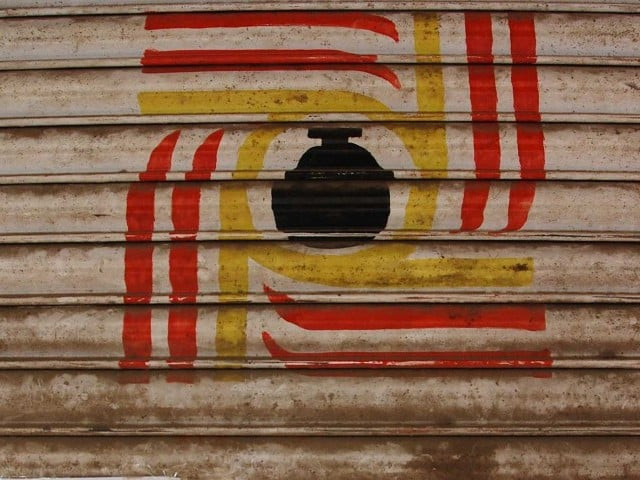In absence of subsidy, USC sales dropping fast
Corporation is running without a permanent head for more than one year

Corporation is running without a permanent head for more than one year. PHOTO: EXPRESS
According to officials aware of the development, the USC is being run by an acting chief for the past more than a year as the government has failed to bring in a permanent head.
The Ministry of Industries and Production had attempted twice to fill the post by publishing advertisements, but the process was abandoned on both occasions. It has made a third bid as well, but the situation is still uncertain.

According to officials, there were sales issues as well that could lead to the collapse of USC, which will be included in the privatisation list. These included the end of subsidy on commodities like sugar that caused a drop in sales.
Total sales at USC outlets stood at Rs80 billion in financial year 2013-14, which dropped to Rs59 billion in 2014-15, they said. Similarly, sales were Rs3 billion in September this year, which went down to Rs2.1 billion in October.
In order to provide relief to ordinary consumers, the government launched various packages for the sale of essential commodities at subsidised rates at USC outlets. These incentives not only provided a cushion to the public, it also led to price stability in the open market.
The federal cabinet, in its meeting in June 2007, also decided to open 5,000 new utility stores at the union council level throughout the country to offer necessities such as wheat flour, ghee, oil, sugar, pulses and rice at concessionary rates.
However, the subsidy, except for sugar, was discontinued in the budget for fiscal year 2008-09. At present, 65% of USC stores are running in rural areas.
The corporation sold sugar at subsidised prices from July 2008 to April 2014 before the Economic Coordination Committee (ECC) decided in April 2014 to stop the offer.
Despite selling essential items at prices lower than the open market, USC deposited more than Rs30 billion in taxes in the government exchequer over the last seven years.
Published in The Express Tribune, November 18th, 2015.
Like Business on Facebook, follow @TribuneBiz on Twitter to stay informed and join in the conversation.



















COMMENTS
Comments are moderated and generally will be posted if they are on-topic and not abusive.
For more information, please see our Comments FAQ